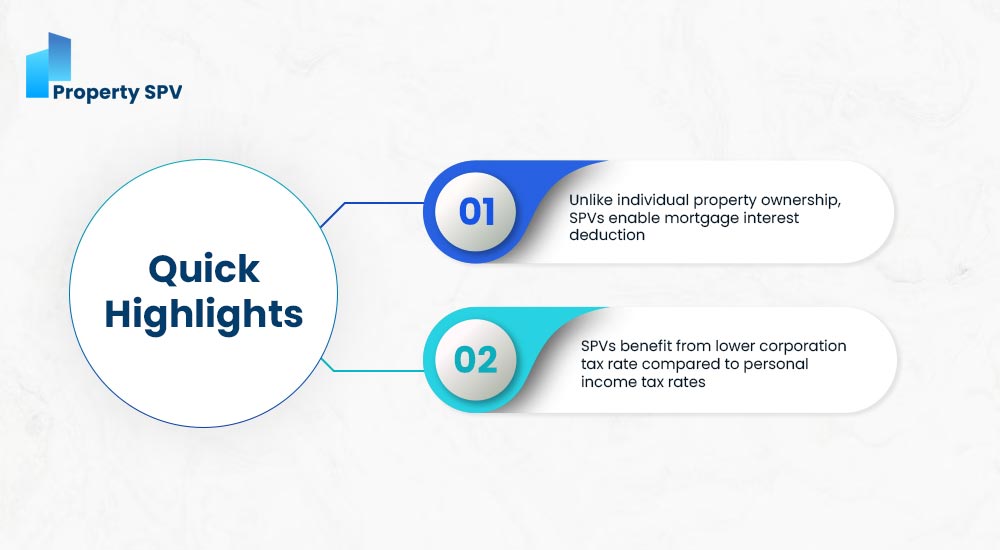First-time Property Investors: Save on Taxes with SPVs
2 min
October 3, 2024
Chirag Majithia
.jpg&w=2048&q=100)
Learn effective tax-saving strategies with SPVs, helping first-time investors maximise returns.
First-time property investors have many things to consider, and among these is how SPVs can help save on taxes. An SPV is a company created especially to hold and manage property assets, and these vehicles offer significant tax advantages compared with personal ownership. Here is how:
1. Corporate Tax Rates
Owning property via an SPV means that investors can take advantage of the lower corporation tax rate available, currently 19% against personal income tax rates of up to 45%. Immediately, this presents an opportunity to save on taxes, especially for higher-rate taxpayers.
2. Mortgage Interest Relief
Unlike individual landlords, SPVs can still fully deduct mortgage interest from rental income when calculating taxable profits. This is counted as quite a big plus, given the phased withdrawal of the interest relief for personal property investors.
3. Inheritance Tax Planning
SPVs are very efficient when it comes to inheritance tax planning. Shares in an SPV can be more systematically passed down to the heirs in comparison to the shares in a company which helps reduce the overall burden of inheritance taxes.
4. Expense Deductions
SPVs also provide several deductible expenses against rental income to the investors. These include several things: maintenance, management costs, property repairs, and they help in reducing your tax liabilities. Usually, these deductions are far more generous than those for individual property owners.
5. Tax-Efficient Profit Distribution
The main benefits of using an SPV are that the investors can withdraw the profits in a tax-efficient manner, either as dividends or capital gains, which may be at a lower rate than if the rental income had been drawn as an individual.

6. Capital Gains Tax (CGT)
An SPV also allows flexibility in the mitigation of Capital Gains Tax on the sale of a property. The sale of shares in an SPV itself could incur a lower rate of CGT compared to the direct sale of the property. Also, it is possible to postpone CGT with the use of different reliefs.
7. Easier Reinvestment
SPVs make it far easier to reinvest the money earned. The earnings retained in SPV can be reinvested into further acquisitions without immediately considering any tax deductions; hence, there is faster portfolio growth.
Conclusion: Is an SPV Right for You?
While SPVs have a lot of tax benefits, the SPV setup includes some administrative and regulatory costs, which investors need to weigh against the possible tax savings. Naturally, it is advisable to consult a tax adviser to decide whether an SPV fits in the property investment strategy.
For the first-time investor in property, SPV can present some serious tax-saving opportunities. From the corporate advantages in taxation to deducting expenses and facilitating flexible inheritance planning, SPVs are a strategic way to maximise one's investment.
Want to Know More?
Contact us for expert advice on property investment SPVs.
By using this website, you agree to the storing of cookies on your device to improve your experience on the website. See our Cookies Policy for more information.